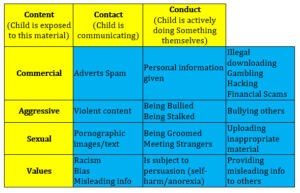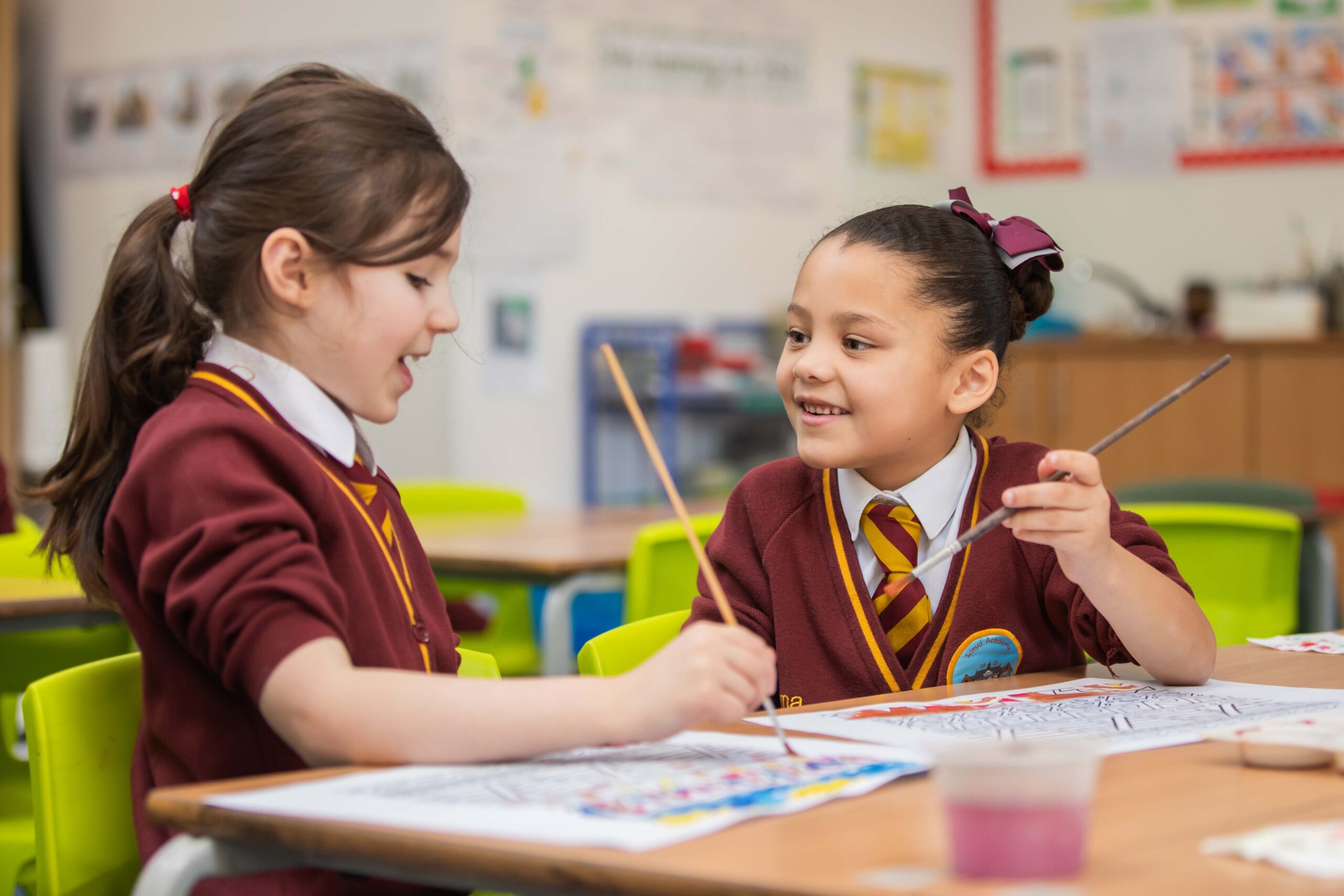Holy Month of Ramadan
As we embark on the auspicious journey of the Holy Month of Ramadan at Sneyd…
Online Safety is always high on the agenda here at SneydAcademy . We have extensive security measures in place, which are constantly monitored both internally and externally, to prevent our pupils from coming into any potential danger or accessing unsuitable material whilst at school.
Lessons are taught from Reception upwards explaining and demonstrating how to stay safe online when using the internet and working with technology.
Online Safety encompasses Internet technologies and electronic communications. It highlights the need to educate pupils about the benefits and risks of using technology and safeguards our children by raising awareness to enable them to control their online experience. The school’s online safety policy will operate in conjunction with other policies including those for computing, Acceptable Internet Use Agreement, Behaviour, Bullying, Curriculum, Child Protection, Data Protection and Security.
As a school, we have assigned Digital Literacy Leaders who help to raise awareness and plan events and quizzes to continually teach and promote Online Safety. We have displays around our school and rules posted in all rooms to display appropriate use and how to stay safe. Our children are also informed that our network and their internet use will be monitored for safety purposes.
At Sneyd Academy, we take the issue of Internet Safety very seriously and on this page, you will find information that will support you as parents/guardians.
The internet is a fantastic resource, but it can also bring a lot of risk. We work with our pupils in school to help them understand the dangers and learn how to keep themselves safe.
All pupils are asked to sign an agreement on how they will use the Internet in school.
As a school, we highlight Online Safety during our Safer Internet Day, held annually, to make our pupils aware of all the dangers and to encourage them to be safe online.
Click here to go to the Safer Internet Day website for more information:
Your help is still needed to prevent children accessing inappropriate material at home by way of filters and parental controls. Look below at our extensive list of links and resources for Parents/Carers, Teachers and Young People to help you with your child’s online safety at home.
Removing images shared online – Guidance on how to get images removed that have been posted online.
Keeping your children safe: online & beyond
https://www.ceop.police.uk/Safety-Centre/
The CEOP (Child Exploitation and Online Protection Centre) logo pictured here is on a lot of social networking sites. It is the Advice, Help and Report button. Clicking on it will take you to their website, where you can easily follow links for help if you are a parent or child. It is excellent, so please try it now!
https://www.thinkuknow.co.uk/
Highly recommended is the Thinkyouknow website. This is an education initiative by CEOP – the UKs national law enforcement agency that focuses on tackling sexual abuse of children.
Below are some quick links for parents to some key questions and Top Tips in their ‘Growing up online’ section.
What is my child doing online?
How do I talk to my child about what they’re doing online?
What risks might my child face?
What tools are there to help me keep my child safe?
Online safety game – 4 -7 year olds.
Childnet International – Guidance for Parents, Teachers and Young People
This contains detailed information regarding specific topics such as social networking, online grooming, gaming and downloading.
A simple and effective way to get involved with your children and their lives online is through discussion. Why not use our conversation starters for parents and carers to get the ball rolling? Click on the picture above.
https://www.bbc.co.uk/cbbc/findoutmore/stay-safe-facts
CBBC Stay Safe is a super internet survival guide for you and your child/ren. Here are the tips and tricks you’ll need to stay safe online, beat the cyber-bullies and become a super-surfer.
Launched in January 2015, this campaign aims to raise awareness of how to help your child stay safe on social networks, apps and games. They have a useful guide to the social networks young people are using on their Net Aware website: http://www.net-aware.org.uk/
https://www.kcom.com/home/discover/categories/tech-corner/top-10-anti-bullying-apps/
Visit Google’s Safety Centre to learn how to change Google’s search settings to SafeSearch filtering: http://www.google.co.uk/familysafety/tools.html
This setting is designed to screen sites with explicit sexual text and images that you don’t want your child to stumble across when browsing the internet.
What are the dangers and risks to my child from the internet?

You can download for free the report or its summary on the Department for Education website Information on the table was taken from “Safer Children in a Digital World” – a report by Dr Tanya Byron.
Did you know that Facebook requires users to be 13 years old before they can create their own account?
For more information about Safeguarding please visit:

Our aim is to enthuse our children to ‘Learn, Achieve, Believe’ in all that they do.
We offer a broad and balanced curriculum as well as excellence in maths and English. We bring in expertise for pupils in music and PE and achieve well in these subjects.
Here you can find a collection of our latest news. We aim to keep all stakeholders as up-to-date as possible.
As we embark on the auspicious journey of the Holy Month of Ramadan at Sneyd…
Are you passionate about education and hold a degree? Alpha Academies Trust presents exciting opportunities…
If you require a paper copy of any of the pages / documents published on this website, please click here and complete the form stating which page(s) / document(s) you require along with your name and address.